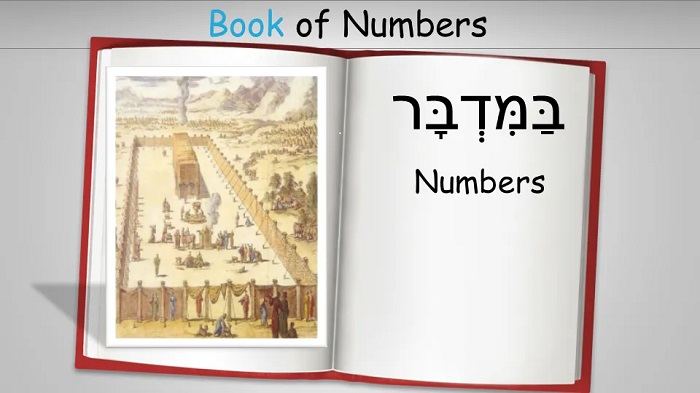The Book of Numbers is one of the five books in the Torah, which is the foundational text of the Hebrew Bible. The Book of Numbers is called “Bamidbar” (בְּמִדְבַּר) in Hebrew, which means “In the Wilderness” or “In the Desert.” This name reflects the book’s primary setting and central theme—the Israelites’ journey through the wilderness on their way to the Promised Land.
Introduction to the Book of Numbers
The Book of Numbers is the fourth book of the Torah and the Hebrew Bible. It follows Genesis, Exodus, and Leviticus. Numbers continues the narrative of the Israelites after their escape from slavery in Egypt. The book details their experiences, challenges, and encounters as they travel through the desert towards Canaan, the land promised to them by God.
Structure and Content of the Book of Numbers
The Book of Numbers can be divided into three main sections:
Preparation for the Journey (Chapters 1-10)
Wilderness Wanderings (Chapters 11-25)
Preparations to Enter the Promised Land (Chapters 26-36)
Each section provides insights into the lives of the Israelites, their relationship with God, and the leadership of Moses.
Preparation for the Journey
The book begins with God instructing Moses to take a census of the Israelite community. This census is important for organizing the people into a structured society and preparing them for their journey. The census also serves a military purpose, as it helps to identify and organize men who can fight in battles.
The Israelites are then organized into tribes, each with its own leader and designated camp around the Tabernacle. This arrangement emphasizes the centrality of the Tabernacle, which represents God’s presence among His people.
Wilderness Wanderings
The second section of the book details the Israelites’ journey through the wilderness. This period is marked by numerous challenges and rebellions. The people frequently complain about their hardships, lack of food and water, and their prolonged stay in the desert.
One of the most significant events during this time is the sending of twelve spies to scout the land of Canaan. Ten of the spies return with a discouraging report, causing the people to lose faith and refuse to enter the Promised Land. As a result, God decrees that the current generation will not enter the land, and they are condemned to wander in the wilderness for forty years.
Preparations to Enter the Promised Land
The final section of the book focuses on the new generation of Israelites preparing to enter Canaan. This preparation includes taking another census, reviewing the laws and regulations given to their parents, and making provisions for the division of the land among the tribes.
The book ends with the Israelites on the plains of Moab, ready to cross the Jordan River and take possession of the Promised Land under the leadership of Joshua.
Significance of the Name “Bamidbar”
The Hebrew name “Bamidbar” captures the essence of the book’s content and theme. The wilderness, or desert, is not just a physical location but also a symbol of the Israelites’ spiritual journey. The desert represents a place of testing, growth, and transformation. It is in the wilderness that the Israelites encounter God, receive His laws, and learn to depend on Him.
See Also: How to Study the Book of Numbers in the Bible?
Theological Themes in Bamidbar
The Book of Numbers is rich with theological themes that are crucial to understanding the faith and identity of the Israelites. Some of these themes include:
God’s Guidance and Provision: Throughout their journey, the Israelites experience God’s guidance and provision. Despite their frequent complaints and rebellions, God provides them with manna, quail, and water from a rock. He leads them with a pillar of cloud by day and a pillar of fire by night.
Leadership and Rebellion: The book highlights the challenges of leadership, as seen in the lives of Moses and Aaron. It also records various rebellions against their authority, including the revolt of Korah. These stories emphasize the importance of obedience to God’s appointed leaders.
Faith and Obedience: The Israelites’ journey through the wilderness serves as a test of their faith and obedience. Their repeated failures and lack of trust in God result in severe consequences, such as the decree to wander for forty years. Conversely, the faithful actions of individuals like Joshua and Caleb are rewarded.
Holiness and Purity: The laws and regulations given in Numbers underscore the need for holiness and purity among God’s people. These laws cover a wide range of topics, including ceremonial cleanliness, vows, and offerings.
Conclusion
The Book of Numbers, or “Bamidbar” in Hebrew, is a rich and complex text that offers valuable insights into the history, faith, and identity of the Israelites. Its narrative of the wilderness journey highlights the challenges and growth experienced by God’s people as they learn to trust and obey Him.


